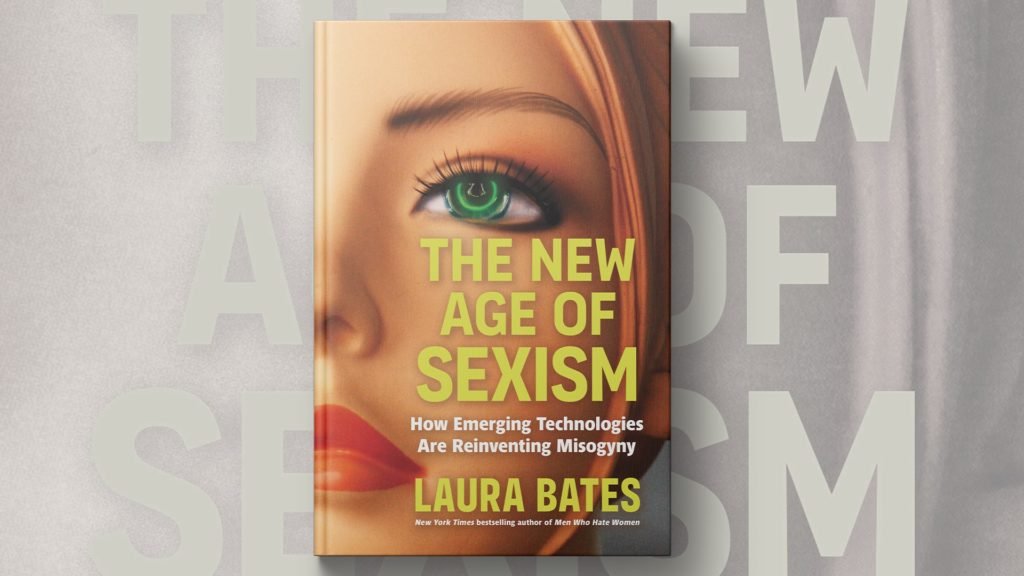AI Research
Confirmed—artificial intelligence is dismantling the Amazon, Walmart, and Best Buy model and changing the future of commerce forever

Amazon is no longer what it used to be. Walmart is falling behind. Best Buy could become irrelevant… what’s going on? What seemed unthinkable just a few years ago is now a real possibility: artificial intelligence is dismantling the traditional online retail model. That’s right, something that once felt impossible is now closer than ever.
Homepages, digital storefronts, are dying. And in their place, shoppers are increasingly turning to AI assistants that tell them directly what to buy, where to buy it, and why.
The transformation has already begun. Beyond using artificial intelligence as a new way to search for information, it has become a hyper-personalized shopping advisor. You don’t need to visit Amazon if your AI assistant already knows what you need and redirects you to the best available product. This puts the e-commerce giants in check, they risk becoming invisible if they don’t adapt quickly. But… does this make us more passive? More controlled?
Not all is lost (yet). There are three paths that could save these brands: leading on price, dominating logistics, or becoming experts in content. This is the story of the new digital commerce era, and how to survive it.
What is the dismantling of retail?
For decades, the homepage was the gateway to online shopping. You typed amazon.com, searched for a product, compared, and bought. But that’s changed. Today, more and more users get recommendations directly from AI tools, without ever visiting a store’s website. The AI answers your needs directly, and often, it does it better than you can.
It’s almost like what happened to the media industry when social media took over. People stopped visiting newspaper homepages: each article became a separate entry point through Facebook, Twitter, or Google. The media had to reinvent itself or die, even if that process opened the door to the dreaded fake news era.
Surviving the change
There are three strategies big brands are currently pursuing, and of course, we’re going to tell you about them.
- Strategy 1: Leading on price like Walmart: AI looks for the best deal. If the cheapest option wins, then Walmart might survive thanks to its massive scale. But it’s a tough road: it requires volume, low margins, and extreme efficiency. Not everyone can pull that off.
- Strategy 2: Dominating logistics like Amazon: Consumers want speed. And Amazon has the most efficient distribution network on the planet. Even if its homepage loses relevance, its next-day delivery power might keep it on top.
- Strategy 3 : This is the big opportunity for many brands. If you’re no longer going to Amazon to look for a coffee maker, but your AI assistant recommends the best one based on expert advice, then whoever creates trustworthy, useful content will have the upper hand. It’s no longer just about selling, it’s about guiding!
The future of e-commerce will be more personalized
Forget about a single entry point. In the new marketplace, every user will have a different experience. The site will adapt to your preferences. The products you see will be shaped by your habits. And the recommendations will come from creators or influencers who understand your lifestyle.
Specialized intelligence
Just as the media world saw the rise of independent journalists with strong authority in specific topics, in commerce we’ll see smaller brands gaining ground through expert knowledge. You don’t need to compete with Amazon. You just need to own your niche and become the go-to for that specific need.
Can they survive these changes?
Artificial intelligence is transforming everything, irreversibly. And now, the brands that once relied on their online storefronts will have to adapt or disappear. The consumer no longer searches, they ask. And AI answers with surgical precision. We are (literally) in the middle of a technological revolution!
AI Research
Fight AI-powered cyber attacks with AI tools, intelligence leaders say

Cyber defenders need AI tools to fend off a new generation of AI-powered attacks, the head of the National Geospatial-Intelligence Agency said Wednesday.
“The concept of using AI to combat AI attack or something like that is very real to us. So this, again, is commanders’ business. You need to enable your [chief information security officer] with the tools that he or she needs in order to employ AI to properly handle AI-generated threats,” Vice Adm. Frank Whitworth said at the Billington Cybersecurity Summit Wednesday.
Artificial intelligence has reshaped cyber, making it easier for hackers to manipulate data and craft more convincing fraud campaigns, like phishing emails used in ransomware attacks.
Whitworth spoke a day after Sean Cairncross, the White House’s new national cyber director, called for a “whole-of-nation” approach to ward off foreign-based cyberattacks.
“Engagement and increased involvement with the private sector is necessary for our success,” Cairncross said Tuesday at the event. “I’m committed to marshalling a unified, whole-of-nation approach on this, working in lockstep with our allies who share our commitment to democratic values, privacy and liberty…Together, we’ll explore concepts of operation to enable our extremely capable private sector, from exposing malign actions to shifting adversaries’ risk calculus and bolstering resilience.”
The Pentagon has been incorporating AI, from administrative tasks to combat. The NGA has long used it to spot and predict threats; use of its signature Maven platform has doubled since January and quadrupled since March 2024.
But the agency is also using “good old-fashioned automation” to more quickly make the military’s maps.
“This year, we were able to produce 7,500 maps of the area involving Latin America and a little bit of Central America…that would have been 7.5 years of work, and we did it in 7.5 weeks,” Whitworth said. “Sometimes just good old-fashioned automation, better practices of using automation, it helps you achieve some of the speed, the velocity that we’re looking for.”
The military’s top officer also stressed the importance of using advanced tech to monitor and preempt modern threats.
“There’s always risk of unintended escalation, and that’s what’s so important about using advanced tech tools to understand the environment that we’re operating in and to help leaders see and sense the risk that we’re facing. And there’s really no shortage of those risks right now,” said Gen. Dan Caine, chairman of the Joint Chiefs of Staff, who has an extensive background in irregular warfare and special operations, which can lean heavily on cutting-edge technologies.
“The fight is now centered in many ways around our ability to harvest all of the available information, put it into an appropriate data set, stack stuff on top of it—APIs and others—and end up with a single pane of glass that allows commanders at every echelon…to see that, those data bits at the time and place that we need to to be able to make smart tactical, operational and strategic decisions that will allow us to win and dominate on the battlefields of the future. And so AI is a big part of that,” Caine said.
The Pentagon recently awarded $200 million in AI contracts while the Army doubled down on its partnership with Palantir with a decade-long contract potentially worth $10 billion. The Pentagon has also curbed development of its primary AI platform, Advana, and slashed staff in its chief data and AI office with plans of a reorganization that promises to “accelerate Department-wide AI transformation” and make the Defense Department “an AI-first enterprise.”
AI Research
‘The New Age of Sexism’ explores how misogyny is replicated in AI and emerging tech

Artificial intelligence and emerging technologies are already reshaping the world around us. But how are age-old inequalities showing up in this new digital frontier? In “The New Age of Sexism,” author and feminist activist Laura Bates explores the biases now being replicated everywhere from ChatGPT to the Metaverse. Amna Nawaz sat down with Bates to discuss more.
AI Research
Creating the future with AI: Loyola University Chicago

Wayne Kimball Jr. (right) and Dean Michael Behnam after Kimball received the 2024 Rambler on the Rise Award from Loyola’s Office of Alumni Relations.
When he was seven years old, Wayne Kimball Jr. sold watermelons on the side of the road in rural North Carolina. A few years later, he would build and fix computers in his neighborhood. With a can-do attitude and drive to find new solutions, he worked his way up from there to being a leader for tech giant Google, where he now serves as the Global Head of Growth Strategy & Market Acceleration for Google Cloud’s Business Intelligence portfolio.
Kimball’s journey has taken him around the globe, from North Carolina to Silicon Valley to the Midwest to his current home in Los Angeles. But regardless of where he has lived and worked, Kimball has remained committed to helping others, both as a Quinlan alumnus and as a community leader.
Exploring new horizons
Kimball had nearly a decade of experience in business operations, strategic investments, and management consulting before he returned to Google in 2020. There, he served as Principal for the Cloud M&A business, and subsequently as the Head of AI Strategy and Operations for Google Cloud.
“Working in corporate strategy roles at Google has a truly fulfilling opportunity because we are building for the future in spaces that don’t currently exist,” Kimball said. “I love the challenge of building the plane while flying it.”
Kimball led the integration of Mandiant, Google Cloud’s largest acquisition. In his current role, he is building global programs to accelerate business growth in alignment with the business intelligence product roadmap, delivering ‘artificial intelligence for business intelligence’ so that customers can talk to their data.
“How AI is applied varies depending on the use case and the industry,” Kimball said. “The application can be broad and scalable, yet very nuanced at the same time. AI in the medical field can be very different from AI in retail or logistics or higher education. There’s a lot of work being done to develop niche solutions for very specific use cases.”
Breaking down barriers
When he’s not seeking the next advancement in AI, Kimball works to elevate others. He says entrepreneurship is what helped him unlock the American dream and build wealth, but he learned early on that opportunity wasn’t always equitable.
“I found that despite the community’s need for entrepreneurship, entrepreneurs of color had disproportionally lower resources, particularly lacking access to networks and capital, which directly impacts opportunity for success and sustainability,” Kimball said.
Throughout his career, Kimball has volunteered and held leadership roles in organizations aimed at lifting and empowering communities that have been historically cut off from opportunity. Wayne has remained civically engaged by serving as the Western Regional Vice President of Alpha Phi Alpha Fraternity, Inc, the oldest intercollegiate historically African American fraternity founded at Cornell University in 1906, along with 100 Black Men of America.
Staying connected
Kimball has remained highly involved with the Quinlan community, with frequent in-person visits to Quinlan classrooms, virtual visits with MBA classes, hosting undergraduate students during the Quinlan Ramble, and meetings with other alumni. In Los Angeles, he is an active member of Loyola’s regional alumni community.
This commitment to Quinlan was recognized in 2024 when Kimball was awarded Loyola’s Rambler on the Rise award, which recognizes alumni who are servant leaders in their communities, exemplify excellence in their fields, and are engaged with Loyola after graduation. Returning to campus to accept the award brought back fond memories. That same year, he was elected to the Quinlan Dean’s Board of Advisors.
“It’s always special when you can go back to the place that contributed so much to the person and professional that you are,” Kimball said. “I was incredibly honored to be nominated, let alone receive the award.”
He credits Quinlan with helping to shape him into the transformational global leader he is today. “I’ve always been a firm believer that you should be proud of where you work, go to school, and your family, and I’m proud to be a Loyola alum and more directly a Quinlan alum,” said Kimball.
Learn more
-

 Business2 weeks ago
Business2 weeks agoThe Guardian view on Trump and the Fed: independence is no substitute for accountability | Editorial
-
Tools & Platforms4 weeks ago
Building Trust in Military AI Starts with Opening the Black Box – War on the Rocks
-

 Ethics & Policy2 months ago
Ethics & Policy2 months agoSDAIA Supports Saudi Arabia’s Leadership in Shaping Global AI Ethics, Policy, and Research – وكالة الأنباء السعودية
-

 Events & Conferences4 months ago
Events & Conferences4 months agoJourney to 1000 models: Scaling Instagram’s recommendation system
-

 Jobs & Careers2 months ago
Jobs & Careers2 months agoMumbai-based Perplexity Alternative Has 60k+ Users Without Funding
-

 Podcasts & Talks2 months ago
Podcasts & Talks2 months agoHappy 4th of July! 🎆 Made with Veo 3 in Gemini
-

 Education2 months ago
Education2 months agoMacron says UK and France have duty to tackle illegal migration ‘with humanity, solidarity and firmness’ – UK politics live | Politics
-

 Education2 months ago
Education2 months agoVEX Robotics launches AI-powered classroom robotics system
-

 Funding & Business2 months ago
Funding & Business2 months agoKayak and Expedia race to build AI travel agents that turn social posts into itineraries
-

 Podcasts & Talks2 months ago
Podcasts & Talks2 months agoOpenAI 🤝 @teamganassi

